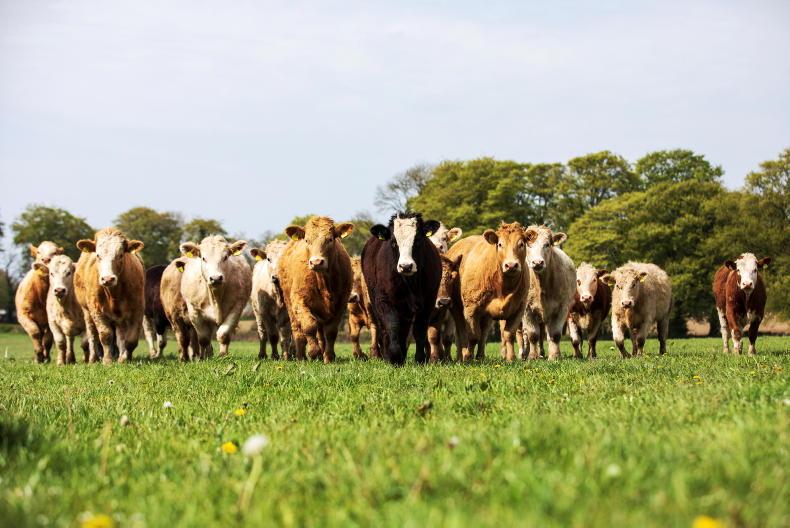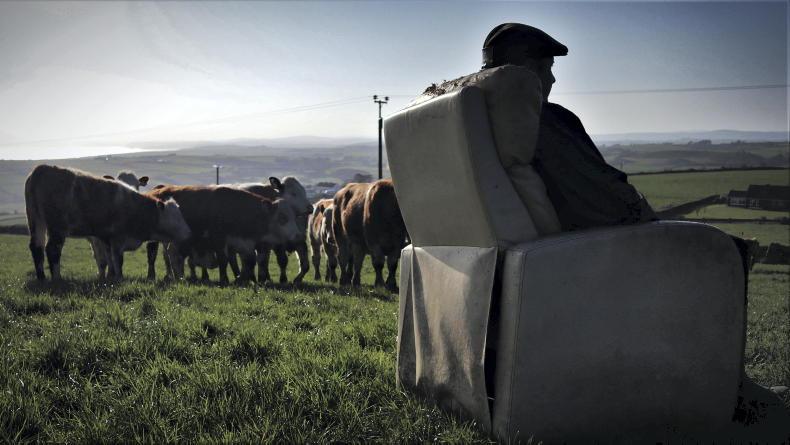Farm schemes could be at risk if agriculture fails to meet its carbon emissions reduction targets.
An Taoiseach Micheál Martin insisted at the launch of the Climate Action Plan last week that the relevant Government departments and associated sectors would have to pay where emissions reduction targets were missed.
Penalties cannot be imposed on CAP Pillar I payments should agriculture miss its climate targets as this monies is fully funded by the EU, and any clawback would therefore have to be returned to Brussels.
There will be a delivery board across Government to ensure that the different sectors and different Government departments meet their targets
However, the indications are that the Government could pull funding for Pillar II schemes if particular programmes were not delivering in terms of climate change.
The State is liable for EU fines if it fails to meet its legally-binding emissions reduction targets.
The Taoiseach insisted that financial penalties will be imposed by Government where sectors did not hit their targets.
“There will be a delivery board across Government to ensure that the different sectors and different Government departments meet their targets. And if they don’t, any costs that arise from that will be levied back on the department and the sector,” he said.
While there is a lack of clarity regarding the manner in which penalties could be levied on the farm sector, Pillar II payments are a potential target.
The Government has indicated it will provide €800m in Exchequer co-funding for Pillar II schemes in the new CAP (2023-27), with a further €1.5bn in carbon tax receipts earmarked for agriculture up to 2030.
The performance of each sector will be monitored by a Climate Action Delivery Board, which will produce quarterly reports
The Irish Farmers Journal understands that any climate-action-related penalties levied on agriculture could take the form of funding cuts for schemes which aimed to reduce carbon emissions but are deemed to have not performed.
Pillar II schemes are the obvious target in such a scenario.
Meanwhile, it is expected that a final figure on the emissions reduction target for agriculture will be agreed by Cabinet early in 2022.
The performance of each sector will be monitored by a Climate Action Delivery Board, which will produce quarterly reports.
The Climate Change Advisory Council (CCAC) will compile an annual review on the progress of each sector, with ministers for departments that are not meeting their targets called before the Oireachtas Committee on Climate Action.
The EPA will monitor agriculture’s level of compliance
Where climate-change-related fines are imposed on the State, the Irish Farmers Journal understands any costs incurred may result in these being
borne by the budget of a particular department or departments.
The EPA will monitor agriculture’s level of compliance. The metrics used to assess farming’s overall performance will include:
Set reductions in the level of nitrogen usage.Reduced feed usage.Manure management, essentially usage levels of LESS.Estimated emissions from livestock, which will be influenced by livestock numbers.Energy usage on farms.
Farm schemes could be at risk if agriculture fails to meet its carbon emissions reduction targets.
An Taoiseach Micheál Martin insisted at the launch of the Climate Action Plan last week that the relevant Government departments and associated sectors would have to pay where emissions reduction targets were missed.
Penalties cannot be imposed on CAP Pillar I payments should agriculture miss its climate targets as this monies is fully funded by the EU, and any clawback would therefore have to be returned to Brussels.
There will be a delivery board across Government to ensure that the different sectors and different Government departments meet their targets
However, the indications are that the Government could pull funding for Pillar II schemes if particular programmes were not delivering in terms of climate change.
The State is liable for EU fines if it fails to meet its legally-binding emissions reduction targets.
The Taoiseach insisted that financial penalties will be imposed by Government where sectors did not hit their targets.
“There will be a delivery board across Government to ensure that the different sectors and different Government departments meet their targets. And if they don’t, any costs that arise from that will be levied back on the department and the sector,” he said.
While there is a lack of clarity regarding the manner in which penalties could be levied on the farm sector, Pillar II payments are a potential target.
The Government has indicated it will provide €800m in Exchequer co-funding for Pillar II schemes in the new CAP (2023-27), with a further €1.5bn in carbon tax receipts earmarked for agriculture up to 2030.
The performance of each sector will be monitored by a Climate Action Delivery Board, which will produce quarterly reports
The Irish Farmers Journal understands that any climate-action-related penalties levied on agriculture could take the form of funding cuts for schemes which aimed to reduce carbon emissions but are deemed to have not performed.
Pillar II schemes are the obvious target in such a scenario.
Meanwhile, it is expected that a final figure on the emissions reduction target for agriculture will be agreed by Cabinet early in 2022.
The performance of each sector will be monitored by a Climate Action Delivery Board, which will produce quarterly reports.
The Climate Change Advisory Council (CCAC) will compile an annual review on the progress of each sector, with ministers for departments that are not meeting their targets called before the Oireachtas Committee on Climate Action.
The EPA will monitor agriculture’s level of compliance
Where climate-change-related fines are imposed on the State, the Irish Farmers Journal understands any costs incurred may result in these being
borne by the budget of a particular department or departments.
The EPA will monitor agriculture’s level of compliance. The metrics used to assess farming’s overall performance will include:
Set reductions in the level of nitrogen usage.Reduced feed usage.Manure management, essentially usage levels of LESS.Estimated emissions from livestock, which will be influenced by livestock numbers.Energy usage on farms. 









SHARING OPTIONS